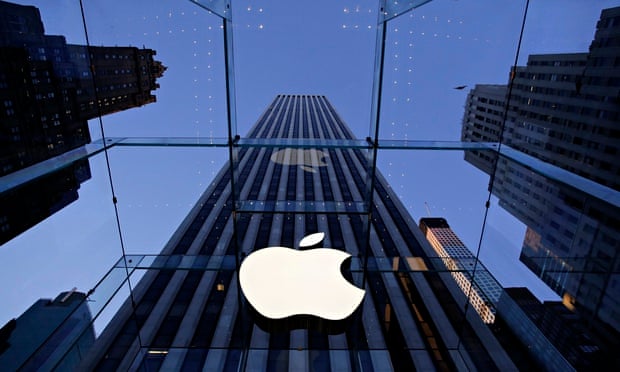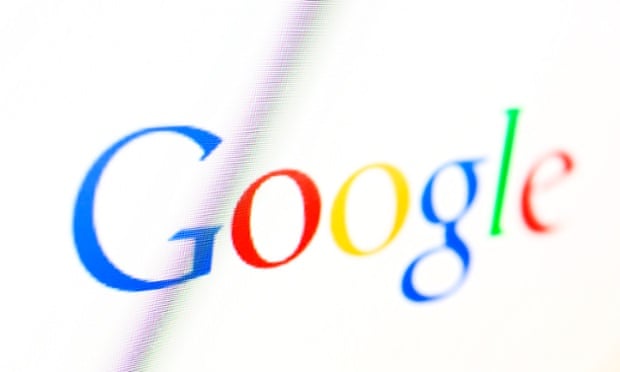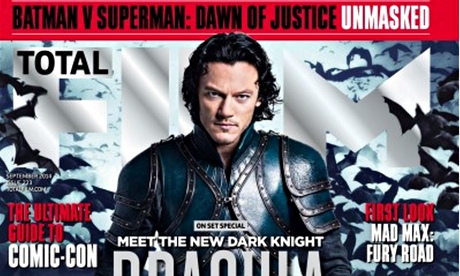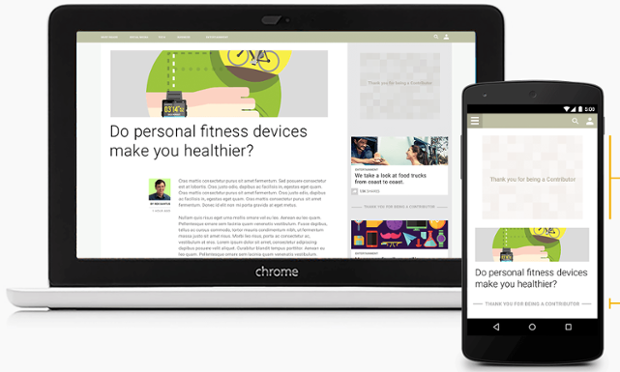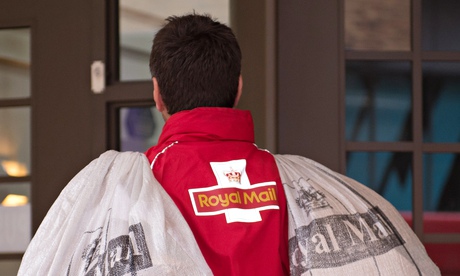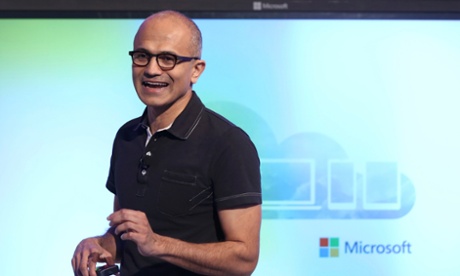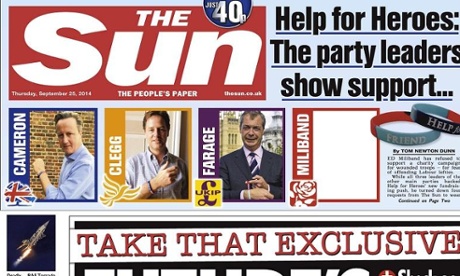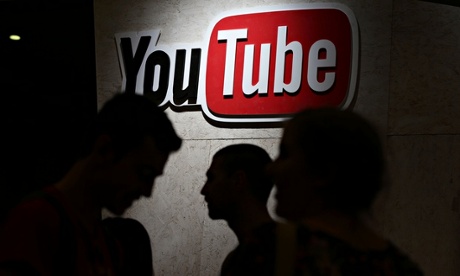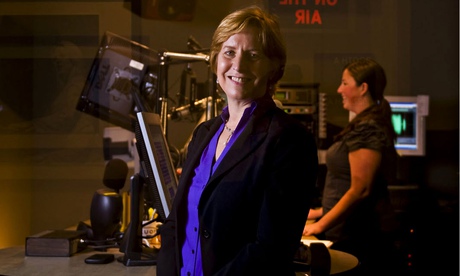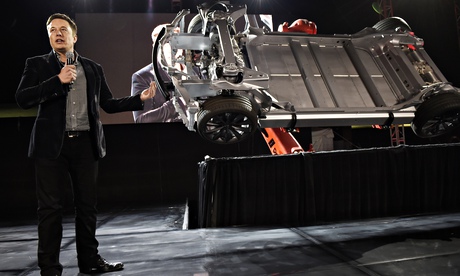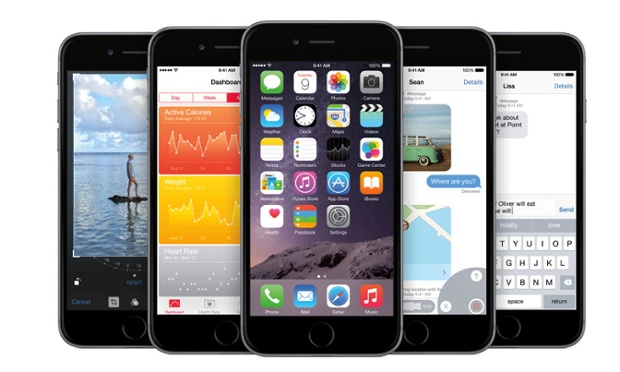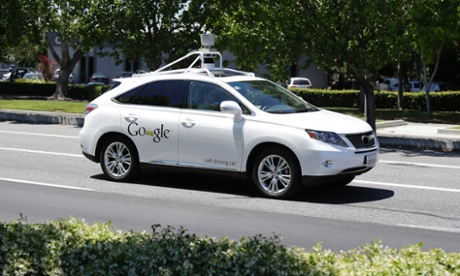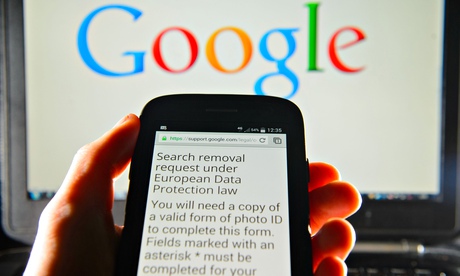- Our news in my opinion is influenced by American Cultural imperialism. Google is the most relevant example of this as this American institution.
- The increased globalisation has improved the audience experience as it allows audiences to access and read different approaches to news stories and possibly find a news institution whose ideologies match the audiences so both user and producer can agree on current affairs. Also,the quality of news has increased as the competition with other institutions not only locally, but globally, means that there are better journalists and news institutions.
- Globalisation has benefited major news institutions as it has given these institutions a wider target audience, however for some of these institutions this may not be as beneficial as this brings more competition which could force their audiences to other news providers who may be able to provide and produce better news coverage. Also, price would be a competition between these global institutions, and with the BBC being free it would mean that some people would rather read that rather than for example the Times which has placed a paywall.
Monday 15 December 2014
Globalisation
Essay
The development of new/digital media means the audience is more powerful in terms of consumption and production. Discuss the argument for and against this view.
The development for new/digital media has provided the audience with an illusion an increase of power. Audiences may feel like they can get their voice heard and possibly tackle large institutions; however, this is not the case. It still remains that these large institutions are in fact injecting information and dripfeeding ideologies to the audiences like the hypodermic needle, therefore institutions such as Google continue to grow and control the vast majority of the internet. This is evident as the chief executive of NewsCorp wrote in a letter to the EU claiming of the “Overwhelming power of Google” as UGC websites in effect provide audiences with power to become active producers rather than passive consumers such as YouTube; these webistes that allow audiences to generate their own media content are owned by these large media institutions, like Google, therefore posting any of your own content on YouTube is in effect owned by Google.
The development for new/digital media has provided the audience with an illusion an increase of power. Audiences may feel like they can get their voice heard and possibly tackle large institutions; however, this is not the case. It still remains that these large institutions are in fact injecting information and dripfeeding ideologies to the audiences like the hypodermic needle, therefore institutions such as Google continue to grow and control the vast majority of the internet. This is evident as the chief executive of NewsCorp wrote in a letter to the EU claiming of the “Overwhelming power of Google” as UGC websites in effect provide audiences with power to become active producers rather than passive consumers such as YouTube; these webistes that allow audiences to generate their own media content are owned by these large media institutions, like Google, therefore posting any of your own content on YouTube is in effect owned by Google.
A Marxist perspective would argue that the so-called
“information revolution” has done little to benefit audiences or to subvert the
established power structures in society. Far from being a “great leveller”
(Krotoski, 2012) as many have claimed, it has merely helped to reinforce the
status quo by promoting dominant ideologies. The most popular news website in
the UK by a considerable margin is the ‘Mail Online’, which receives more than
8 million hits every month and is continuing to expand rapidly – with forecasts
that it will make £100 million or more in digital revenues in the next three
years. Similar to its tabloid print edition, the website takes a Conservative,
right-wing perspective on key issues around gender, sexuality and race and
audiences appear to passively accept what the Marxist theorist, Gramsci, called
a hegemonic view. When one of their chief columnists, Jan Moir, wrote a
homophobic article about the death of Stephen Gately in 2009 there were Twitter
and Facebook protests but, ultimately, they did not change the editorial
direction of the gatekeepers controlling the newspaper.
A pluralist perspective suggests that one of the ways the
audience is more powerful is that they can now engage with the news via
comments, questions and answers, even dating sites as seen on The Guardian. New/digital
media has allowed the audience to interact with the news and access it more
freely. A new concept that supports this is citizen journalism which has been
on the rise ever since one of its first examples being the Rodney King video of
the police beating him up after a high speed car chase; which in turn
started riots in LA in America. This had
shown how effective citizen journalism is as ordinary people now are able to
break news and report on things they may have seen or heard. A theorist in
support of the pluralistic argument is Al Gore as he states that “the internet
is an empowering tool.. and exciting and revolutionary prospect.” In many ways
Al Gore is right as it has empowered many ordinary people into reporting news.
However, to the contrary, the top 5% of all websites
accounted for 75% of user volume a study shows by Lin and Webster in 2002. This
shows that new/digital media if anything, has made the rich more powerful as
the minority serve the majority according to Paretos law. Google and Amazon are
perfect examples of how these large institutions serve the majority and
continue to grow over time. Google are continuously growing and adapting to the
point of where they are researching and experimenting in almost every
department such as travel, health and so on with their new projects; they seem
to be too big of a company for the internet itself causing them to go into
other specialised fields. Also, Amazon are following Google with their
experimentation; Amazons CEO Jeff Bezos had recently admitted that he has made
billions of dollars out of the failures at Amazon. Therefore regardless of
new/digital media it remains that large institutions who dominate the media will
continue to do so as Herman and Chesney anticipated in 1997 that “The internet
and the digital revolution do not pose an immediate or even foreseeable threat
to the market power of the media giants.”
In conclusion I believe that the new/digital media has
provided power to audiences as many of the large media institutions have grown
from people who once were an audience of the internet itself; therefore the growing
advance in technology does allow audiences to express themselves and voice
their opinions to an extent. However, it does show that we may be encapsulated
by the developments of new/digital media that we may feel in control but are in
fact being controlled by these large institutions and are being shown what we
want to and what media institutions want to show us.
Learner response
The development of New/Digital media means that the audience is more powerful in terms of consumption and production. In recent years the rise of the internet and the UGC platforms have allowed audiences to embrace all the benefits of finally being able to make an evident difference; people can become celebrities simply by voicing their opinion or being themselves through the internet. Also, audiences are able to consume a variety of media in whichever way they want to via video, text, audio, and they can also consume whatever content they want to.
Learner response
The development of New/Digital media means that the audience is more powerful in terms of consumption and production. In recent years the rise of the internet and the UGC platforms have allowed audiences to embrace all the benefits of finally being able to make an evident difference; people can become celebrities simply by voicing their opinion or being themselves through the internet. Also, audiences are able to consume a variety of media in whichever way they want to via video, text, audio, and they can also consume whatever content they want to.
Monday 1 December 2014
Weekly NDM
Mail Online revenues grow 41% to £62m in 2014
This article is about how the newspaper institution Daily Mail's online webiste Mail Online has had a growth in revenue by 41% this year. It also discusses how the Metro have combined with Wowcher, a daily deals business to gain revenue.
This article is interesting as it shows how Daily Mail have successfully transitioned to using the internet to present their news articles via their website. Also, it portrays that the only way for newspaper institution to survive is to combine with new/digital media institutions, or to move over to presenting news online. this article shows that a paywall isn't needed to present news as Mail Online have successfully presented news online with online advertising as a source of funding.
http://www.theguardian.com/media/2014/nov/26/mail-online-revenues-grow
This article is about how the newspaper institution Daily Mail's online webiste Mail Online has had a growth in revenue by 41% this year. It also discusses how the Metro have combined with Wowcher, a daily deals business to gain revenue.
- Mail Online grew revenues by more than 40% to £62m in 2014.
- The Daily Mail and Mail on Sunday reported a 5% decline in total revenue to £536m. Print advertising revenues fell 5% while circulation revenues dropped 4%.
- Total ad revenues across the Mail businesses hit £252m, a 4% year-on-year increase (£9m). Within this, Mail Online grew ad revenues by 46%.
- The company said the Mail Online’s revenue growth of £19m year-on-year outstripped the £10m decline in print advertising revenues.
- Overall operating profit at the Mail businesses grew 13% to £71m. Daily commuter freesheet Metro’s revenues fell 3% to £75m.
- Profits for Metro are combined with daily deals business Wowcher, which saw revenues grow 73% to £24m, which fuelled a 92% surge to £14m.
This article is interesting as it shows how Daily Mail have successfully transitioned to using the internet to present their news articles via their website. Also, it portrays that the only way for newspaper institution to survive is to combine with new/digital media institutions, or to move over to presenting news online. this article shows that a paywall isn't needed to present news as Mail Online have successfully presented news online with online advertising as a source of funding.
http://www.theguardian.com/media/2014/nov/26/mail-online-revenues-grow
Thursday 27 November 2014
Weekly NDM
Apple becomes first company worth $700bn
This article is about how Apple have broke all their records this year and they have become the first company to be worth $700bn. It shows how the new iPhone 6 and iPhone 6 Plus have been one of the main causes of their company succeeding as much as they have in the year of 2014.
http://www.theguardian.com/technology/2014/nov/25/apple-first-company-worth-700bn-iphone
This article is about how Apple have broke all their records this year and they have become the first company to be worth $700bn. It shows how the new iPhone 6 and iPhone 6 Plus have been one of the main causes of their company succeeding as much as they have in the year of 2014.
- First company to be valued at $700bn (£446bn).
- The iPhone maker was already the world’s most valuable business, but in early trading its shares rose nearly 1% to $119.75, giving it a market capitalisation of $701.7bn. This is higher than the GDP of all but the top 19 countries in the world.
- Apple’s shares have risen around 60% this year, with the success of its iPhone 6 and iPhone 6 Plus one of the main reasons behind the surge.
- Last month it announced that it had sold a record 39.3m iPhones in its third quarter, and predicted that its latest products would help it boost sales by at least 10% over the forthcoming holiday period.
- Exxon is now worth around $405bn, while Apple’s technology rivals Microsoft and Google are valued at $392bn and $368bn respectively.
- Michael Corcelli, head of US fund Alexander Alternative Capital, saying he expected its market capitalisation to reach $1trn next year.
- But Apple is not the world’s most valuable company in history if inflation is taken into account. CNBC calculated that Microsoft’s peak market capitalisation of $613bn in 1999 would become nearly $875bn at 2014 prices.
http://www.theguardian.com/technology/2014/nov/25/apple-first-company-worth-700bn-iphone
Weekly NDM
Does Europe have the power to break up Google?
This article is about the European Commission is set to clash with the members of the European Parliament over whether Google's search engine should be separated from the rest of the company as the EC re-open their anti-trust case against the US search giant.
This article is about the European Commission is set to clash with the members of the European Parliament over whether Google's search engine should be separated from the rest of the company as the EC re-open their anti-trust case against the US search giant.
- Google could face a “statement of objections” - the formal path towards a fine that could equate to 10% of the company’s global revenue, or about $6bn (£3.7bn).
- “It is a very bad signal,” Mario Mariniello, a former antitrust official who works for the Bruegel thinktank told the Wall Street Journal. “Politicisation is now getting to an extreme.”
I find this article very interesting as it shows how big of an institution Google is and that the EC do not trust the large US media giant and are preparing strategies to separate the search engine from the rest of the company. Also, this debate currently has the EC and the Parliament set to clash, and the former antitrust official is also fearing that 'politicisation is getting to an extreme.'.
http://www.theguardian.com/technology/2014/nov/26/does-europe-have-the-power-to-break-up-google
http://www.theguardian.com/technology/2014/nov/26/does-europe-have-the-power-to-break-up-google
Monday 24 November 2014
The Murdoch Paywall
Newspapers: The effect of online technology
The Times paywall three years on
The Times paywall three years on
- To an extent I agree with James Murdoch's view that the BBC should charge for their online news service as it is in fact paid for via the license fee, therefore there is already a charge for the service. However, for those who do not pay the license fee and still access this free service should be charged; in order to prevent this, usernames or id's could be provided to license fee payers for the BBC's services. On the other hand, it is part of BBC's duty or remit as such to inform its audience; especially in the form of news; so the BBC shouldn't charge online for their news service because people have the right to know what is going on around the world and if institutions decide to put up paywalls, it would be difficult for people to access news as Newspapers would also eventually die.
- Rupert Murdoch is right to put his news content behind a paywall as it is his institution and if he believes the best method of keeping his institution afloat is by charging customers via subscription, then it would in fact be the best method. However, they have had to sacrifice some of their audience in the process as there are institutions such as the BBC and The Guardian who don't charge for their online services; therefore a paywall may not be entirely successful as audiences generally want things for free so what would stop them from changing newspapers entirely. Also, I don't necessarily agree that news should be restricted to those who pay for it as there are other models such as advertising to create revenue so that people can be informed and can receive news for free.
Build the Wall
Section 1:
This section of the article is about how newspaper institutions must find a way of charging people for content as print sales decrease.
Section 2:
This section is about how the online websites that provide news have caused print newspapers to be a less relevant method of receiving news.
Section 3:
This section is about how news used to be provided such as through papers delivered to houses and how a subscription model could be used to make audiences pay for their content online.
Section 4:
This section is about what would happen if The Times, and The Post, put up a paywall for audiences to pay for their content.
I will never pay for “news” again. Most news is not truly news - it is sensationalism, hype and deception. Most news is not balanced - every editor is biased. And it is not just that - I truly can not afford to pay for news. Academics, especially with tenure, got it made in the shade and may be able to afford to follow the “news” as they are funded and it does not come out of their pockets. The question comes down to this - do we want an informed public or not. The answer, at least right now, is no. If the public were truly properly informed the American people would not allow Wall Street to gut Main Street, would not believe the lies of “the terrorists are going to destroy our way of life” and would understand that it really makes no difference - except in perception - of who holds the title of chief cheerleader - oops I mean Commander in Chief, President, which should be renamed CEO of America Incorporated.
This comment disagrees with David Simon's idea of people paying for news and believes that news is not necessarily news due to the fact that 'every editor is biased'. In my opinion to an extent this person does have a point as we would be paying for somebody's opinion on a story; although it may not be obvious or present within the article, but it still is based on the editors views.
Brilliant analysis! I now understand why radio and TV news charges money: If they gave it away for free, they'd go out of business!
This person agrees with the article as he understands that in order for institutions to continuously produce content for its audience, they need to make money. Therefore a paywall would seem like a relevant business proposition for the newspaper institutions as if news was given for free, they would eventually go out of business.
This section of the article is about how newspaper institutions must find a way of charging people for content as print sales decrease.
Section 2:
This section is about how the online websites that provide news have caused print newspapers to be a less relevant method of receiving news.
Section 3:
This section is about how news used to be provided such as through papers delivered to houses and how a subscription model could be used to make audiences pay for their content online.
Section 4:
This section is about what would happen if The Times, and The Post, put up a paywall for audiences to pay for their content.
I will never pay for “news” again. Most news is not truly news - it is sensationalism, hype and deception. Most news is not balanced - every editor is biased. And it is not just that - I truly can not afford to pay for news. Academics, especially with tenure, got it made in the shade and may be able to afford to follow the “news” as they are funded and it does not come out of their pockets. The question comes down to this - do we want an informed public or not. The answer, at least right now, is no. If the public were truly properly informed the American people would not allow Wall Street to gut Main Street, would not believe the lies of “the terrorists are going to destroy our way of life” and would understand that it really makes no difference - except in perception - of who holds the title of chief cheerleader - oops I mean Commander in Chief, President, which should be renamed CEO of America Incorporated.
This comment disagrees with David Simon's idea of people paying for news and believes that news is not necessarily news due to the fact that 'every editor is biased'. In my opinion to an extent this person does have a point as we would be paying for somebody's opinion on a story; although it may not be obvious or present within the article, but it still is based on the editors views.
Brilliant analysis! I now understand why radio and TV news charges money: If they gave it away for free, they'd go out of business!
This person agrees with the article as he understands that in order for institutions to continuously produce content for its audience, they need to make money. Therefore a paywall would seem like a relevant business proposition for the newspaper institutions as if news was given for free, they would eventually go out of business.
Weekly NDM
Future Publishing cuts more than 400 jobs as part of restructure
This article is about how Total Film's magazine sales have been on the decline and that due to the loss they have had to cut down staff and refocus their business.
http://www.theguardian.com/media/2014/nov/21/future-publishing-cuts-400-jobs
This article is about how Total Film's magazine sales have been on the decline and that due to the loss they have had to cut down staff and refocus their business.
- Future Publishing has reported a £35m loss, as the embattled publisher revealed it has cut more than 400 staff, over 40% of total employees, to cut costs and refocus the business.
- Total Film publisher Futrure Publishing has reported a loss of £35.4m in the year to the end of September, with a 20% decline in revenues
- Print revenues declined by 26% from £52.2m to £38.7m, while digital and diversified revenues fell slightly from £30.4m to £27.3m.
- The company said that digital advertising at its UK operation represents 63% of total UK ad revenue.
http://www.theguardian.com/media/2014/nov/21/future-publishing-cuts-400-jobs
Weekly NDM
Google Contributor: can I really pay to remove ads?
This article is about how Google have provided a new service to its internet browsers that allows them to remove ads and pay a small fee. Google are doing this to try and exoeriment whether companies can just recieve a small fee from their audience rather than have advertisements.
http://www.theguardian.com/technology/2014/nov/21/google-contributor-pay-remove-ads
This article is about how Google have provided a new service to its internet browsers that allows them to remove ads and pay a small fee. Google are doing this to try and exoeriment whether companies can just recieve a small fee from their audience rather than have advertisements.
- Google lets users choose how much they want to pay to not see ads from $1, $2 or $3 (£1.91) a month tied to a Google account.
- Google is starting the service with 10 publishing partners, including Mashable, Imgur, WikiHow and Science Daily.
http://www.theguardian.com/technology/2014/nov/21/google-contributor-pay-remove-ads
Friday 21 November 2014
Gatlung and Ruge
Immediacy has changed drastically as new/digital media provides the audience with more up to date recent news than ever. Rather than previously having to wait till the next day for the news to be published on the newspapers or later on in the day during the news feed, it is published there and then on the internet news sites as well as social network sites such as twitter allowing for breaking news.
Familiarity has changed as more news that is even closer to us within Britain is published due to the ability of publishing unlimited amount of news online. Therefore more news is allowed to be presented and they news can be culturally close to us.
Amplitude has been affected by new/digital media as it provides the audience with the ability to get involved with stories and gain more information about big events such as the Oscars or the London riots. Previously people may have never been able to get much news about events such as these on newspapers or news feeds.
Frequency has been affected as events that occur instantly, can quickly be reported on and published online; they can also trend on social network sites.
Unambiguity due to the internet has become more on the ambiguous side as there are many online news sources available and they all have a different opinion to a story. As a result the news stories aren’t entirely clear and definite because there are no online mediators.
Predictability has changed as events are able to be expected more now than ever due to social network sites and user generated content. For example the London riots took to social network sites such as Facebook in order to plan the event beforehand, so we could see this and we knew that they were going to happen.
Surprise is affected as rare or unexpected events generate vast amounts of interest and cause the public to contribute to the stories. Social network sites such as twitter are used effectively for unexpected events because people usually discuss and break news on the site.
Continuity due to new/digital media has caused the news to become out-dated very quickly; therefore news that has been published previously becomes old news and doesn’t usually last long in the public as people are looking to read new articles.
Elite nations and people has remained the same regardless of new/digital media, however the internet has allowed other nations to present their own news about their country. Also, nations such as Egypt and in the Middle East have the ability to break news due to new/digital media such as the Arab spring with allowed the public in Middle East countries to rise up against their government.
Negativity is less important nowadays as all news is made on the internet. However for newspapers negativity is more important as shocking/bad news would generate more sales for newspapers.
Balance isn’t as important as new/digital media provides the ability for all news stories to be presented locally, as well as globally.
Familiarity has changed as more news that is even closer to us within Britain is published due to the ability of publishing unlimited amount of news online. Therefore more news is allowed to be presented and they news can be culturally close to us.
Amplitude has been affected by new/digital media as it provides the audience with the ability to get involved with stories and gain more information about big events such as the Oscars or the London riots. Previously people may have never been able to get much news about events such as these on newspapers or news feeds.
Frequency has been affected as events that occur instantly, can quickly be reported on and published online; they can also trend on social network sites.
Unambiguity due to the internet has become more on the ambiguous side as there are many online news sources available and they all have a different opinion to a story. As a result the news stories aren’t entirely clear and definite because there are no online mediators.
Predictability has changed as events are able to be expected more now than ever due to social network sites and user generated content. For example the London riots took to social network sites such as Facebook in order to plan the event beforehand, so we could see this and we knew that they were going to happen.
Surprise is affected as rare or unexpected events generate vast amounts of interest and cause the public to contribute to the stories. Social network sites such as twitter are used effectively for unexpected events because people usually discuss and break news on the site.
Continuity due to new/digital media has caused the news to become out-dated very quickly; therefore news that has been published previously becomes old news and doesn’t usually last long in the public as people are looking to read new articles.
Elite nations and people has remained the same regardless of new/digital media, however the internet has allowed other nations to present their own news about their country. Also, nations such as Egypt and in the Middle East have the ability to break news due to new/digital media such as the Arab spring with allowed the public in Middle East countries to rise up against their government.
Negativity is less important nowadays as all news is made on the internet. However for newspapers negativity is more important as shocking/bad news would generate more sales for newspapers.
Balance isn’t as important as new/digital media provides the ability for all news stories to be presented locally, as well as globally.
Tuesday 18 November 2014
Weekly NDM
Google to test-fly balloons which transmit internet over Australia
This article is about how Google are yet working on another fascinating project. This project is a balloon that transmits internet to homes, smartphones and other internet devices 20km bellow the balloon. Their aim is to be able to have these balloons circling the earth so that it can provide internet to the estimated two thirds that are currently not connected to the web.
This article is about how Google are yet working on another fascinating project. This project is a balloon that transmits internet to homes, smartphones and other internet devices 20km bellow the balloon. Their aim is to be able to have these balloons circling the earth so that it can provide internet to the estimated two thirds that are currently not connected to the web.
- The balloons carry antennas that can beam 4G-like signals to homes and phones 20km below.
- The company will test-fly 20 balloons in western Queensland in December in partnership with Telstra.
- Project Loon has been in development since mid-2011 by scientists at Google X, the secretive lab also working on Google Glass and driverless cars.
This article is interesting as constantly Google are working on creating something new and beneficial for the people such as driverless cars and internet balloons. It also shows how much money Google have at their disperse as they can start new projects and work on many at a single time.
Weekly NDM
Royal Mail says Amazon delivery service will hit its UK parcels business
This article is about how Amazons new parcel delivery service will have a dramatic effect on the Royal Mails parcel service as Amazon are charging less and they also provide an option to their customers for same day delivery free for their Amazon Prime customers.
This article is about how Amazons new parcel delivery service will have a dramatic effect on the Royal Mails parcel service as Amazon are charging less and they also provide an option to their customers for same day delivery free for their Amazon Prime customers.
- Shares in Royal Mail, privatised last October, dropped 8.4% to 430p after the company said losing the business from delivering many of Amazon’s 70m packages a year would cut its potential parcel growth in half.
- Amazon is Royal Mail’s biggest customer, accounting for 6% of all parcels. Royal Mail said its parcel growth rate would decline from 4%-5% to 1%-2% for at least two years because of Amazon’s decision.
This article is interesting as it shows how online media institutions are expanding, and due to this, they are affecting traditional organisations such as the royal mail.
Monday 10 November 2014
Weekly NDM
Dropbox and Microsoft team up, placing Office in the cloud
This article is about how Microsoft and Dropbox, two online new and digital media institutions are partnering up in order to integrate Microsoft Office into the cloud even though Microsoft have their own cloud service called One Drive.
This article is about how Microsoft and Dropbox, two online new and digital media institutions are partnering up in order to integrate Microsoft Office into the cloud even though Microsoft have their own cloud service called One Drive.
- “Today, Dropbox has 300 million users, of whom 70% are international, and a ton of them use Dropbox to get work done,”
- ‘These people have uploaded something like 35bn Office files. Today, they get a great experience on the desktop, but what we’re doing now is taking that experience to mobile and the web.”
Sunday 9 November 2014
Weekly NDM
The Sun slips below 2m daily sale for the first time in 43 years
This article is about how The Sun, has had a drop in sales taking it to under 2m sales in october for the first time in 43 years, in 1971. It also discusses how well or poor other newspapers are doing.
This article is about how The Sun, has had a drop in sales taking it to under 2m sales in october for the first time in 43 years, in 1971. It also discusses how well or poor other newspapers are doing.
- The Sun slipped below the 2m sales mark in October, with an average daily sale of 1,978,324 copies.
- The Sun remains the largest-selling daily by a good margin - some 318,000 ahead of the Daily Mail and a whopping (not Wapping nowadays) 1,040,000 ahead of the Daily Mirror.
- Average decline among the five popular daily titles of 44.6% and 49.% for the four "broadsheet" titles since october 2000.
- One oddity, incidentally, was the Daily Star, which stood out as having lost fewer copies (down just 16.2%) in that period. And, since you are bound to ask, the worst performer was the Independent, down 74.9%. (The Guardian fell by 49.3%).
Friday 31 October 2014
Weekly NDM
YouTube: 'There's going to be a point where people don't want to see ads'
This article is about how YouTube is considering different ways to charge viewers for watching YouTube videos. It discusses how their previous attempt to charge those via subscriptions had failed in 2013. It also states that there will be a point when viewers will say that they dont want to see ads anymore.
- The company has previously said that “almost 40%” of its watch time comes from mobile devices.
- Wojcicki revealed the new statistic during an on-stage interview at the US Code/Mobile conference, where she added that YouTube’s overall watch time is still growing at a 50% rate annually.
- In May 2013 it introduced subscriptions as an option for some of its channel owners, enabling them to charge people to watch some videos, and keep 55% of the proceeds.
Weekly NDM
Google is developing a cancer and heart attack-detecting pill
This article is about how Google, one of the largest media institutions, are taking a different path, and is looking to create a nanoparticle pill that could identify cancers, diseases, and other problems, before they become severe.
This article is about how Google, one of the largest media institutions, are taking a different path, and is looking to create a nanoparticle pill that could identify cancers, diseases, and other problems, before they become severe.
- More than £100bn a year is spent on the National Health Service in Britain.
- The system known as the “nanoparticle platform” is Google’s latest venture into the lucrative health market, which is worth around 10% of the economy of developed nations.
- The pill would contain magnetic particles approximately 10,000 times smaller than the width of a human hair.
Weekly NDM
Newspapers
This article is about how the Spanish government has passed a new copyright law that forces online content aggregators such as Google News, to pay a fee for the information that they portray from other news sources.
http://www.theguardian.com/technology/2014/oct/31/spain-newspaper-google-tax
Spain moves to protect domestic media with new 'Google tax'
This article is about how the Spanish government has passed a new copyright law that forces online content aggregators such as Google News, to pay a fee for the information that they portray from other news sources.
- Failure to pay up can lead to a fine of up to €600,000.
- The company says that it is “disappointed” with Spain’s new law. “We believe that services like Google News help publishers bring traffic to their sites.
- Google defends itself by claiming that it 10 billion views to newspapers’ websites every month.
http://www.theguardian.com/technology/2014/oct/31/spain-newspaper-google-tax
Thursday 23 October 2014
Monday 20 October 2014
Citizen Journalism
Examples:
Benefits to Institutions:
Benefits to Audiences:
Benefits to Institutions:
- Crowd sourcing.
- Institutions can pay less to trained professionals as there will be a reduced amount in empyed trained professionals.
- Institutions cna see what news impacts what audiences the most and present articles accordingly.
Benefits to Audiences:
- Peoples stories can be heard.
- Can gain recognition through UGC and make breakthroughs.
- More choice and people can generate their own news/content.
- There would be more incorrect information published.
- Less censorship.
- Sites could be run by controversial people.
- Social: People are able to have more control in what they read and can socially interact with one another easily compared to before.
- Historical: Prior to new/digital media, people recieved their news through newspapers, radio broadcasts, and TV. Most of the news was limited as not all news stories were able to be shown due to the fact that there was more news then could be presented.
- Economical: As online apps and websites are free, such as Twitter, and Facebook, and YouTube; in order to keep them running, they make their money through advertisements.
- Political: The governement cannot mediate everything that is online as they do not have the same control as they do with broadcast platforms and print platforms.
What impact is new/digital media having on the following:
- News Stories
- People can now create and produce their own news and their own stories.
- Audiences have more option and can select what they want to know and read about rather than what they are shown.
- News is now more accessible and you can receive news more frequently and as soon as it occurs, compared to traditionally waiting for the next days paper or few days even.
- News also is ever changing, people become bored of a story and move on after a while.
- The News Agenda
- People are more in control of what they want to read and what is shown in the news as the news is now primarily based on what people want to hear and know about.
- Audiences are able to comment on articles and now have the ability to voice their opinions; therefore the more relevant a news article is to an audience, the more likely the news article would be presented.
- The role of professionals in the news
- There are fewer and fewer permanent trained staff in organisations.
- News is left unmediated as people can produce their own news and present it far easier than ever.
- Professionals are having to adapt to the availability of new technology and are now having to post articles online.
Weekly NDM
The dizzying decline of Britain’s local newspapers: do you want the bad news, or the good news?
This article is interesting as it shows that people are infact becoming active producers and that maybe in the future local newspapers will not be available as nobody is willing to purchase them due to the digital age.
http://www.independent.co.uk/news/media/press/the-dizzying-decline-of-britains-local-newspapers-do-you-want-the-bad-news-or-the-good-news-9702684.html
This article is about how local newspapers are on the decline in sales and less and less people are buying them due to the ability to access news from a variety of new and different sources. Also it discusses how users themselves are producing their own content .
- Sales are in freefall – down by an average of 13.5 per cent year-on-year in the first half of 2014. The poor South Wales Argus fell by an eye-watering 33.2 per cent and the Doncaster Star sold barely 1,000 copies a day.
This article is interesting as it shows that people are infact becoming active producers and that maybe in the future local newspapers will not be available as nobody is willing to purchase them due to the digital age.
http://www.independent.co.uk/news/media/press/the-dizzying-decline-of-britains-local-newspapers-do-you-want-the-bad-news-or-the-good-news-9702684.html
Weekly NDM
How should we deal with death in the social media age?
This article is about a family who had recieved messages from their late grandmother saying “I’m watching over you, you’ll get through this, you’ll be all right.” although they had burried her mobile phone with her. it discusses how social network is used for grieving and how people for instance post up news of deaths before the next of kin can even be informed.
I think this article is interesting as it shows how much social media is used in a variety of ways; and that it is a platform for news and it spreads the word.
http://www.theguardian.com/commentisfree/2014/oct/17/death-social-media-grief-facebook-twitter-text
This article is about a family who had recieved messages from their late grandmother saying “I’m watching over you, you’ll get through this, you’ll be all right.” although they had burried her mobile phone with her. it discusses how social network is used for grieving and how people for instance post up news of deaths before the next of kin can even be informed.
I think this article is interesting as it shows how much social media is used in a variety of ways; and that it is a platform for news and it spreads the word.
http://www.theguardian.com/commentisfree/2014/oct/17/death-social-media-grief-facebook-twitter-text
Thursday 16 October 2014
The Rise Of UGC
- What is meant by the term 'Citizen Journalist'?
The term 'Citizen Journalist' means when non-professionals collect, analyse, present news on blogs, wikis and websites that allow them to share information using tablets, laptops, smartphones, etc. It is also known as Public Journalism.
- What was one of the first examples of news being generated by 'Ordinary People'?
One of the first examples of news being generated by ordinary people was the home-video footage which made prime-time news globally and had become a sensation internationally. The video showed 4 LA police officers taser and beating Rodney King with clubs after finally capturing him after a high speed car chase om 1991. Which in turn lead to riots due that had taken the lives of 53 people and left 4000 people injured.
- List some of the formats for participation that are now offered by news organisations. · Blogs· Forums· Comments· Opinion Polls
- What is one of the main differences between professionally shot footage and that taken first-hand (UGC)?
Professionally shot footage always is seen to be in some form bias as it only shows what the news institution wants the audience to see, whereas first-hand footage always normally portrays a different view to the story. Also, first-hand footage shows how truly bad something is as it isn't edited or cut short and people trust others more than news institutions with power.
- What is a gatekeeper?
A gatekeeper is someone who controls access to something and in terms of news it would be the editor who selects stories for publication based on their organizations criteria or remit as such.
- How has the role of a gatekeeper changed?
In some ways the role of a gatekeeper has changed as there is less control from these professionals who used to dictate what is presented and what isn't. Traditionally if a citizen had a story to tell or a piece of news they would have had to go through these news organizations, however UGC and sites that encourage that such as Twitter and Facebook allow citizens and ordinary people with a story to be heard.
- What is one of the primary concerns held by journalists over the rise of UGC?
One of the primary concerns held by journalists over the rise of UGC is that there will be fewer trained professionals in news organisations leaving a small amount of staff to be in control and manage UGC from citizen journalists, also known as 'crowd sourcing'. Also, another concern is that there would be less mediators moderators and they would eventually disappear which would leave the media unmediated, which allows people to present information that could be false or very negative towards groups of people and much more.
Monday 13 October 2014
Weekly NDM
Can Twitter make money out of breaking news or is it a PR platform?
This article is interesting as it discusses how the head of news and journalism partnership at Twitter has stepped down and how others have followed due to the direction of which Twitter is going.
http://www.theguardian.com/media/media-blog/2014/oct/12/twitter-breaking-news-pr-vivian-schiller
This article is interesting as it discusses how the head of news and journalism partnership at Twitter has stepped down and how others have followed due to the direction of which Twitter is going.
- Twitter over whether it should largely be a conduit for journalism or PR. And whether a technology company, even one with 271 million monthly users, believes it can make money out of breaking news.
- Twitter has always seemed bigger than it actually is because of the type of people – celebrities, sports stars and politicians as well as newshounds – who use it
http://www.theguardian.com/media/media-blog/2014/oct/12/twitter-breaking-news-pr-vivian-schiller
Buzzfeed
21 Signs Your Tea Obsession Is Getting Out Of Control
This article shows its audience signs of how their obsession with tea is getting out of control. It contains 21 pictures and sentences such as 'You have more varieties of tea than pairs of shoes. Or Shirts. Or friends.' This would appeal to audiences that like to read random meaningless articles that are made to generally kill time. This goes with the idea that audiences are dumbing down
This news is different from traditional media as it portrays short concise information in a sentence to its audience about the current news. This is different as it allows audiences to be able to pick and choose at ease what they want to read and at the same time be able to see what else is happening around the world. Unlike traditional media which only presents key information that is assumed to be relevant to its audience, like the hypodermic needle model.
This article shows its audience signs of how their obsession with tea is getting out of control. It contains 21 pictures and sentences such as 'You have more varieties of tea than pairs of shoes. Or Shirts. Or friends.' This would appeal to audiences that like to read random meaningless articles that are made to generally kill time. This goes with the idea that audiences are dumbing down
This news is different from traditional media as it portrays short concise information in a sentence to its audience about the current news. This is different as it allows audiences to be able to pick and choose at ease what they want to read and at the same time be able to see what else is happening around the world. Unlike traditional media which only presents key information that is assumed to be relevant to its audience, like the hypodermic needle model.
Friday 10 October 2014
Weekly NDM
Media
Ofcom: one in three children under 15 have their own tablt computer, supplanting TV
This article is about research conducted by ofcom which finds that 34% of five to fifteen year olds have thir own tablets, and has increased from 19% in 2013 to 34% in 2014.
http://www.theguardian.com/technology/2014/oct/09/ofcom-one-in-three-children-tablet
Ofcom: one in three children under 15 have their own tablt computer, supplanting TV
This article is about research conducted by ofcom which finds that 34% of five to fifteen year olds have thir own tablets, and has increased from 19% in 2013 to 34% in 2014.
- Apple dominates with 50% of the UK tablet users.
- Ofcom found that 84% of parents directly supervise their children.
- Tesco says the Hudl sold 750,000 tablets in the past year.
http://www.theguardian.com/technology/2014/oct/09/ofcom-one-in-three-children-tablet
Weekly NDM
Technology
Car that parks itself rolls off Tesla production line in California
This article is about a well known car manufacturing company who specialise in making electric sports cars, who have now started to make cars that drive all by themselves, more specifically, park themselves. It also discusses other intitutions such as Google who are developing this technology to create a driverless car.
I think this article is interesting as it portrays the change in times as car manufacturing companies are looking to develop the industry to help drivers and create a safer driving environment, and media institutions such as Google, are also getting in on this technology themselves.
http://www.theguardian.com/technology/2014/oct/10/car-parks-itself-tesla-motors-california-elon-musk
Car that parks itself rolls off Tesla production line in California
This article is about a well known car manufacturing company who specialise in making electric sports cars, who have now started to make cars that drive all by themselves, more specifically, park themselves. It also discusses other intitutions such as Google who are developing this technology to create a driverless car.
I think this article is interesting as it portrays the change in times as car manufacturing companies are looking to develop the industry to help drivers and create a safer driving environment, and media institutions such as Google, are also getting in on this technology themselves.
http://www.theguardian.com/technology/2014/oct/10/car-parks-itself-tesla-motors-california-elon-musk
Weekly NDM
Newspaper
The Sun's 'Unite against Isis' campaign is a proxy for anti-Muslim bigotry
This article is about the Sun's attempt to persuade people of Britain, especially Muslims to stand up to extremists and display their loyalty to Britain by placing a mini cut out flag which was placed in th Sun's newspaper where it could be seen by everyone. The front page of The Sun showed a lady in a hijab of the Union Jack.
I find this article interesting as it is another attempt from The Sun newspaper to persuade the British people as they did with the elections in 1992. However this article is controversial as this could make the British Muslims feel as if they are under watch and they must display their loyalty to Britian constantly.
The Sun's 'Unite against Isis' campaign is a proxy for anti-Muslim bigotry
This article is about the Sun's attempt to persuade people of Britain, especially Muslims to stand up to extremists and display their loyalty to Britain by placing a mini cut out flag which was placed in th Sun's newspaper where it could be seen by everyone. The front page of The Sun showed a lady in a hijab of the Union Jack.
I find this article interesting as it is another attempt from The Sun newspaper to persuade the British people as they did with the elections in 1992. However this article is controversial as this could make the British Muslims feel as if they are under watch and they must display their loyalty to Britian constantly.
Weekly NDM
Technology
Amazon Fire Phone review: Setting nothing ablaze
This article is about how the recent smartphone released by Amazon; one of the largest online shopping institutions in the world, had not met its expectations. According to the critic, the smartphone felt outdated and had a terrible software which ran everything.
I think that this article is interesting as it shows how media institutions keep on growing and they all want to get in on producing different things, other than what they set out for. Such as apple starting off making personal computers, and now produces phones and much more.
http://www.theguardian.com/technology/2014/oct/07/amazon-fire-phone-review-android-smartphone
Monday 6 October 2014
Research Study
Major News Providers:
Broadcast:
Broadcast:
- BBC radio 4
- BBC news
- Sky News
- ITV News
Print:
- The Times
- The Guardian
- The Sun
- Metro
E-Media:
- Guardian
- Daily Mail
- BBC News
- Sky News
Commercial institutions such as The Sun and ITV news present news in a way which would allow them to gain money; The Sun, owned by NewsCorp, charges its audience a fee in order to purchase their newspapers, and ITV news presents adverts to its audiences after/before their news presentations.
Non- commercial institutions such as the BBC and the Metro, a London based newspaper usually given out near the tube, do not charge their audience for their services as such and they usually tend to present unbiased news stories. The BBC is paid for by a TV license, of which everyone with a TV must have in the UK, that in turn pays for the news and everything that comes with it, so an argument can be made that they are a commercial institution, however they do provide their services based on the fee they receive from their customers for their customers and do not aim to generate profit.
Monday 29 September 2014
NDM Summary
- 15/08/2014: Premier League warns fans not to post Vine videos of goals online.
- 07/09/2014: Katie Jacobs Stanton: ‘Twitter is this operating system of news’
- 11/09/2014: Channel 4 to replace 4oD with new online hub All 4
- 11/09/2014: Google takes down newspaper's positive story about an artist
- 17/09/2014: Live: Apple releases iOS 8 software as developers update their apps
- 17/09/2014: US needs a Federal Robotics Commission, says think tank
- 23/09/2014: Jeremy Clarkson in F-word response in claims to a BBC warning
- 23/09/2014: Apple will not shut down Dr Dre's Beats Music but could fold it into iTunes
- 25/09/2014: Google Hits Back at NewsCorp's claims that it is a platform for piracy
- 26/09/2014: Children's apps: 'Technology interferes with the story in most apps'
- 10/10/2014: Amazon Fire Phone review: Setting nothing ablaze
- 10/10/2014: The Sun's 'Unite against Isis' campaign is a proxy for anti-Muslim bigotry
- 10/10/2014: Car that parks itself rolls off Tesla production line in California
- 10/10/2014: Ofcom: one in three children under 15 have their own tablet computer..
- 13/10/2014: Can Twitter make money out of breaking news or is it a PR platform?
- 20/10/2014: How should we deal with death in the social media age?
- 20/10/2014: The dizzying decline of Britain’s local newspapers: do you want the..
- 31/10/2014: Spain moves to protect domestic media with new 'Google tax'
- 31/10/2014: Google is developing a cancer and heart attack-detecting pill
- 31/10/2014: YouTube: 'There's going to be a point where people don't want to see ads'
Learner Response
Essay Question:
Developments in new/digital media mean that audiences can now have access to a greater variety of views. To what extent are audiences empowered by these developments?
Marks: 36/48
Grade: B+
WWW:
Very good argument presented on both sides of the debate.
EBI:
Focus on media texts (not online shopping) and provide specific examples of audience/UGC texts.
Learner Response:
An example of where the audiences are empowered by the media, is social network sites such as Twitter and Facebook. In the past it has been used to generate and produce content that can help produce or even advertise events. One of the most successful content that was created was in February 2012 where Nissan, the car manufacturer invited its fans to help create the worlds first crowd sourced car. The audience visited Nissan's Facebook page to vote on how to create the new car. A quote from the vice president for Nissan North America said "..we though it'd be interesting to harness the power of social media to reach out to Z enthusiasts..".
Developments in new/digital media mean that audiences can now have access to a greater variety of views. To what extent are audiences empowered by these developments?
Marks: 36/48
Grade: B+
WWW:
Very good argument presented on both sides of the debate.
EBI:
Focus on media texts (not online shopping) and provide specific examples of audience/UGC texts.
Learner Response:
An example of where the audiences are empowered by the media, is social network sites such as Twitter and Facebook. In the past it has been used to generate and produce content that can help produce or even advertise events. One of the most successful content that was created was in February 2012 where Nissan, the car manufacturer invited its fans to help create the worlds first crowd sourced car. The audience visited Nissan's Facebook page to vote on how to create the new car. A quote from the vice president for Nissan North America said "..we though it'd be interesting to harness the power of social media to reach out to Z enthusiasts..".
Weekly NDM
NewsCorp
Google Hits Back at NewsCorp's claims that it is a platform for piracy
This article is about a letter written by the chief executive of NewsCorp to the EU about how Google are a platform for piracy and that they have an overwhelming amount of power. The responses from Google are from Rachel Whetstone, the senior vice president of Google's global communications.
- Whetstone said that last year Google removed 222m web pages that broke copyright rules, with an average take down time of six hours.
- News Corp chief executive Robert Thomson branded the internet giant a “platform for piracy and the spread of malicious networks”.
I believe that this is an interesting article as it shows what a new digital media institution's response is to a traditional media institution. It shows that although they both have different views of each other and are expressing them publicly, due to the size of these institutions nothing may come out of this.
Technology
Children's apps: 'Technology interferes with the story in most apps'
This article is about how apps that are based on children's books alter the original story that is published in the books. It contains the opinion of an author and critic on how the apps don't offer that same interaction between a child and their parents, and that children should be reading books instead of 'jabbing at screens'.
I find this article interesting as it contains the opinion of a traditional media expert and how she thinks that the new and digital media has an impact on children and that they do not gain as much with these developments in media as they would do with books.
http://www.theguardian.com/technology/2014/sep/26/childrens-book-apps-technology-story-nicolette-jones
I find this article interesting as it contains the opinion of a traditional media expert and how she thinks that the new and digital media has an impact on children and that they do not gain as much with these developments in media as they would do with books.
http://www.theguardian.com/technology/2014/sep/26/childrens-book-apps-technology-story-nicolette-jones
Thursday 25 September 2014
Weekly NDM
Newspaper
This article is about Top Gear presenter Jeremy Clarkson who has been written about in his rival newspaper, The Mirror. They claim that he has been told by the BBC not to misbehave specifically 'not to cause a diplomatic row' as they travelled to Argentina, and was given a warning, however Jeremy Clarkson did not take too kindly to this claim and fired back at the newspaper.
In my opinion this article is interesting as it's about how one newspaper is claiming that a TV show presenter has been warned. they are trying to suggest that he misbehaves and that the BBC are trying to control him and censor him, therefore there is this back and forth spat between Jeremy Clarkson, and The Mirror.
http://www.theguardian.com/media/2014/sep/23/jeremy-clarkson-bbc-top-gear-mirror
Technology
This article is about the acquisition of Dre Beats by Apple in May for $3bn and how it was thought that they would shut down the company. However, Apple denied this from happening but did not rule out a possible re-branding of the company to play into their iTunes.
http://www.theguardian.com/technology/2014/sep/23/apple-dr-dre-beats-music-itunes
Jeremy Clarkson in F-word response in claims to a BBC warning
This article is about Top Gear presenter Jeremy Clarkson who has been written about in his rival newspaper, The Mirror. They claim that he has been told by the BBC not to misbehave specifically 'not to cause a diplomatic row' as they travelled to Argentina, and was given a warning, however Jeremy Clarkson did not take too kindly to this claim and fired back at the newspaper.
In my opinion this article is interesting as it's about how one newspaper is claiming that a TV show presenter has been warned. they are trying to suggest that he misbehaves and that the BBC are trying to control him and censor him, therefore there is this back and forth spat between Jeremy Clarkson, and The Mirror.
http://www.theguardian.com/media/2014/sep/23/jeremy-clarkson-bbc-top-gear-mirror
Technology
Apple will not shut down Dr Dre's Beats Music but could fold it into iTunes
This article is about the acquisition of Dre Beats by Apple in May for $3bn and how it was thought that they would shut down the company. However, Apple denied this from happening but did not rule out a possible re-branding of the company to play into their iTunes.
- Beats Music has had a slow uptake of just 111,000 registered accounts in May, and an estimated 250,000 users through the combination of family accounts.
- Apple had purchased Beats Music for $3bn in May.
I think this article is quite interesting as it is an example of how powerful media institutions are, this taps into the idea that media institutions are getting much bigger and growing; so much so that they are buying out each other. Also, $3bn is a substantial amount of money to have bought a company that has had a very slow uptake compared to its headphone brand.
http://www.theguardian.com/technology/2014/sep/23/apple-dr-dre-beats-music-itunes
Friday 19 September 2014
Essay Plan
Things to write about:
Twitter
- Allows audiences freedom of speech
- Claims they are the digital news for people
Websites/Blogs
- User Generated content
- Created by audiences
YouTube
- Allows people to form opinions and publish thoughts online.
- Two-step flow model - opinion formers
Paretos Law
- Media is still owned by by institutions e.g. Google owns YouTube
Digital Divide
- Countries may not have access to internet
Allowed for 2011 revolution
Breakthrough for countries
Young and Rubican Psychographics
Dependency Theory
Andrew Keen
- Internet is killing our culture
Traditional Media
- Passive consumers - Hypodermic Needle theory
- Active Producers - User Generated Content
Thursday 18 September 2014
Weekly NDM
Digital Media
Live: Apple releases iOS 8 software as developers update their apps
This article is about the new Apple operating system used
for their phones, iOS 8. It provides a live feed of the release as it happened.
It shows different and new additions of which the old software didn’t have.
- Analytics firm Fiksu reports that 13 hours after release, the proportion of iOS devices it sees using iOS 8 is the lowest of the last 4 releases. Just 6.6% are using the new operating system, compared to the 15.5% who were using iOS 7 the same period after launch.
This article is interesting as it informs us of the launch of one of the world’s
largest media company’s software release worldwide. It also was the most
commented on article in the digital media section; this shows that many people
are interested and want to read about the new Apple software.
http://www.theguardian.com/technology/live/2014/sep/17/ios-8-apple-iphone-6-launch-download-app-updates
http://www.theguardian.com/technology/live/2014/sep/17/ios-8-apple-iphone-6-launch-download-app-updates
Technology
US needs a Federal Robotics Commission, says think tank
This article is about how the US needs a federal robotics commission
due to handle all their artificial intelligence and robotics. It consists of
criticism of robots and what could possibly happen with driverless cars or
robots in control of things.
- This July, Vince Cable, the business secretary, announced a £10m fund for driverless car researchers in the UK.
- Driverless cars take to our streets in less than six months.
I find this article quite intriguing as there are many
points and opinions for and against the whole idea of technology and robotics taking
over in everyday life such as driving. It shows that people can rely on this new
and growing technology however it can also lead to other side effects and could
in fact cause damage rather than being safe.
http://www.theguardian.com/technology/2014/sep/17/us-federal-robotics-commission-brookings
http://www.theguardian.com/technology/2014/sep/17/us-federal-robotics-commission-brookings
Newspaper
Google takes down newspaper's positive story about an artist
This article is about how an artist had asked Google to
censor a positive news article about himself and his drawings due to the fact
that they may damage his artistic reputation as he believes that he is a much
better artist then he was. This was considered to be one of the most bizarre examples
of censorship.
I find this article to be fairly interesting as a man has censored his news story which had shown him in a positive manor and Google had blocked the story, however censorship from much more serious matters are considered and deemed too hard to censor.
http://www.theguardian.com/media/greenslade/2014/sep/11/right-to-be-forgotten-local-newspapers
I find this article to be fairly interesting as a man has censored his news story which had shown him in a positive manor and Google had blocked the story, however censorship from much more serious matters are considered and deemed too hard to censor.
http://www.theguardian.com/media/greenslade/2014/sep/11/right-to-be-forgotten-local-newspapers
Subscribe to:
Posts (Atom)

